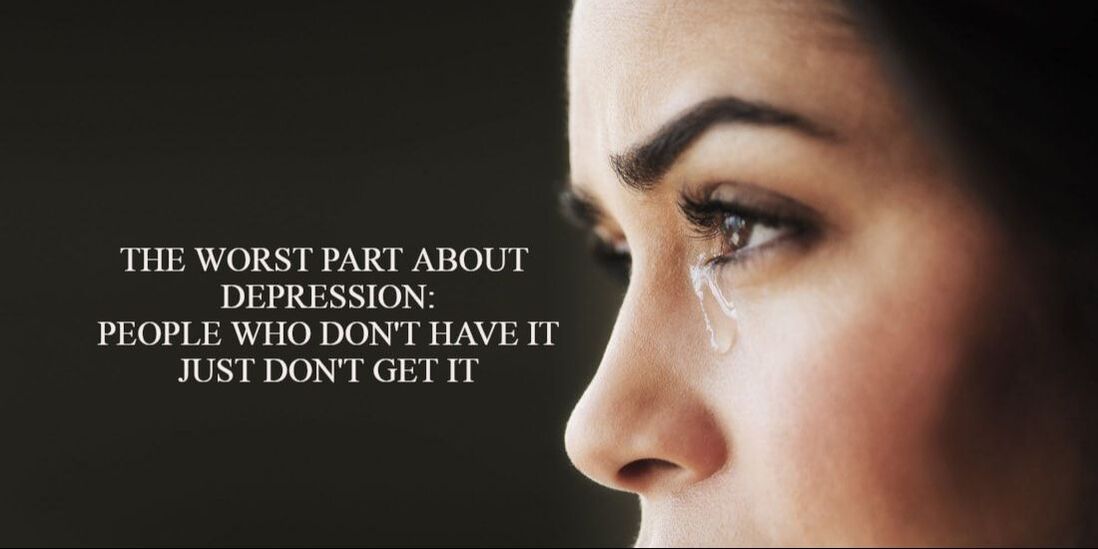|
"Depression is a mood disorder that causes a persistent feeling of sadness and loss of interest. Also called major depressive disorder or clinical depression, it affects how you feel, think and behave and can lead to a variety of emotional and physical problems. You may have trouble doing normal day-to-day activities, and sometimes you may feel as if life isn't worth living. More than just about of the blues, depression isn't a weakness and you can't simply "snap out" of it. Depression may require long-term treatment. But don't get discouraged. Most people with depression feel better with medication, psychotherapy or both."
(Mayo Clinic Staff)
What is depression?
Everyone gets sad or worried, or is “under the cloud“ now and then, but when a lack of joy, happiness or pleasure is everyday reality in somebody’s life, this is an indicator that there may be a more serious problem. A depressed mood that stays around for a a pretty long time can change the way a person thinks or feels. Doctors classify this “clinical depression.” Depression is a common, chronic and serious illness and not a personal weakness or flaw in character. Depression can happen to anyone, at any age, and to people of any race or ethnic group. It is never a “normal” part of life. Depression comes from chemical imbalances in the brain caused by various factors such as hormonal changes, medications or things going on in a person’s life and surroundings. Women suffer from depression twice as often as men. One out of four women may have depression sometime during their lifetime. Many people suffer from depression but never not seek help. In the worst case not being aware and not seeking help, leads to suicide. Symptoms of depression
If you experience five or more of the following symptoms and they last for more than two weeks, or if the symptoms interfere with your daily routine, you should consider seeing a qualified mental health professional. A physical examination to rule out other illnesses may be recommended.
What causes depression? Many things can lead to clinical depression. Following are factors that can contribute to the illness:
Treating depression Depression is the most treatable of all mental illnesses, but it should be mentioned that this is a chronic illness and can recur at any time. Depending on the case, various kinds of therapies seem to work. Treatments such as psychotherapy and support groups help people deal with major changes in life. Several short-term “talk” therapies have proven useful. One method helps patients recognize and change negative thinking patterns that led to the depression. Another approach focuses on improving a patient's relationships with people as a way to reduce depression and feelings of despair. Antidepressant drugs are usually prescribed during treatment. These medications can improve mood, sleep, appetite and concentration. There are several types of antidepressant drugs available. Drug therapies often take time before there are real signs of progress. It is important to keep taking medication until it has a chance to work. After feeling better, it is important to continue the medication for at least four to nine months to prevent a recurrence of the depression. Never stop taking an antidepressant without consulting your doctor. Antidepressant drugs can have side effects but they are usually temporary. In some cases, you may need to try different medicines to find the one(s) that help the most.
Things one can do to help deal with depression
Women suffer from depression twice as often as men. One out of four women may have depression sometime during their lifetime. Many people suffer from depression but never not seek help. In the worst case not being aware and not seeking help, leads to suicide.
0 Comments
Your comment will be posted after it is approved.
Leave a Reply. |
SHAREWe also offer psychological and life coaching consultation services online.
If you want to schedule your session, click the button below. YOU CAN ALSO SUPPORT OUR WORK THROUGH PAYPAL
Categories
All
Archives
June 2021
|
